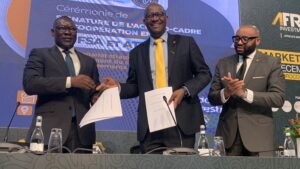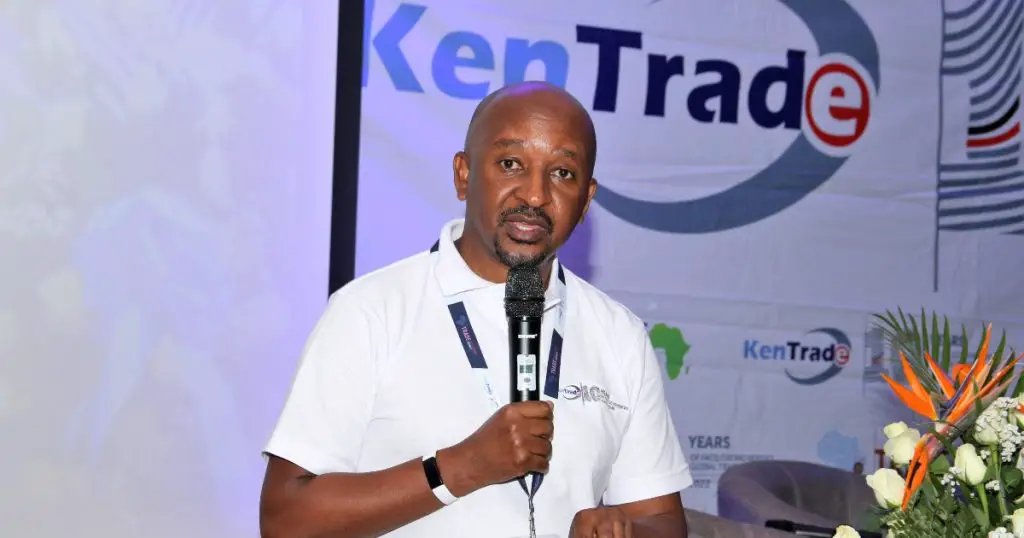- Kenya Trade Network Agency (KenTrade) has embarked on a sensitisation programme targeting insurance companies to integrate them into the upgraded Trade Facilitation Platform (TFP)
- KenTrade’s newly upgraded platform is aimed at enhancing maritime trade efficiency
- It will also ensure faster processing of documents and claims, thus leading to a reduction in the cost of doing business and a subsequent improvement in service delivery standards
Kenya Trade Network Agency (KenTrade) has embarked on a sensitisation programme targeting insurance companies to integrate them into the upgraded Trade Facilitation Platform (TFP) to enhance maritime trade efficiency.
KenTrade ICT Director Anne Waweru said the integration of insurance companies’ systems with TFP will ensure a seamless submission of the marine cargo certificate to regulatory agencies.
It will also ensure faster processing of documents and claims, thus leading to a reduction in the cost of doing business and a subsequent improvement in service delivery standards.
“This forum hopes to sensitise the maritime and insurance industry players on our role in facilitating trade in the country while emphasising the Trade Facilitation Platform, which incorporates insurance services through the Maritime Single Window System,” Waweru said.
The Trade Facilitation Platform is a superior platform that provides a better user experience, as it is based on modern technologies and incorporates the best international practices and standards.
Since the TradeNet System was upgraded, six insurance companies have been fully integrated with the Trade Facilitation Platform.
The Insurance Act 2020 contains a directive by the government that requires shippers to procure Marine Cover Insurance for all their imports from Kenya’s underwriters.
The requirement contained in Section 20 of the Insurance Act states that ‘No insurer, broker, agent or other people shall directly or indirectly place any Kenyan business other than reinsurance business with an insurer not registered under this act’.
The six insurance companies already integrated into the Trade Facilitation Platform are GA Insurance, Heritage Insurance, Jubilee Insurance, APA Insurance, Mayfair Insurance, and Occidental Insurance.
“It is expected that with an increase in the uptake of marine cargo insurance, the premium rates may reduce to the benefit of importers. Importers, especially those with high volumes, can negotiate for discounts on insurance rates with local underwriters in a language they understand,” she added.
The Agency figures show that Kenya’s marine cargo cover insurance is estimated at KSh 96 billion ($800 million) annually.
The latest data from the recently launched KenTrade Business Intelligence (BI) tool shows there has been a 1.58 per cent decrease in the Import levels of cargo received at the ports from 27,770 (metric tonnes) in 2020 to 27,332 (metric tonnes) in 2021.
Export in volume has gone up from 4,205 (metric tonnes) in 2020 to 4,612 (metric tonnes) in 2021, translating to a 9.68 per cent increase in the volume of exports through the port. The general trend for export commodities via the port of Mombasa has been on an upward trend.
“The total graph for the imports and the exports has increased over time, with its total at an average of 30,000 metric tonnes for the last three years. The number has, however, decreased in 2021 as compared to 2020, with 31,000 metric tonnes yielding a decrease of 0.1 per cent in the summation for the imports and the exports in the same period,” the report shows.

In a related story, KenTrade recently invested KSh 90 million in a Business Intelligence (BI) Tool as it seeks to collect big data on Kenya’s import and export trade.
The BI tool helps to facilitate ease of trade in Kenya through extraction and analysis of real-time data to help trade facilitators and government agencies make data-driven decisions.
During the launch, KenTrade Chief Executive Officer Amos Wangora said the move would see the Agency harness relevant data from stakeholders’ systems. This will support better visibility of Mombasa Port and the Northern Corridor Community Charter for improved decision-making and efficiency.
“In the past, we have experienced limitations of report generation features on the TradeNet System. There was a need for better reports and insight gathering, especially for cross-border trade. We have also seen a need to harness additional relevant data from stakeholder systems for improved decision making and efficiency,” he explained.











